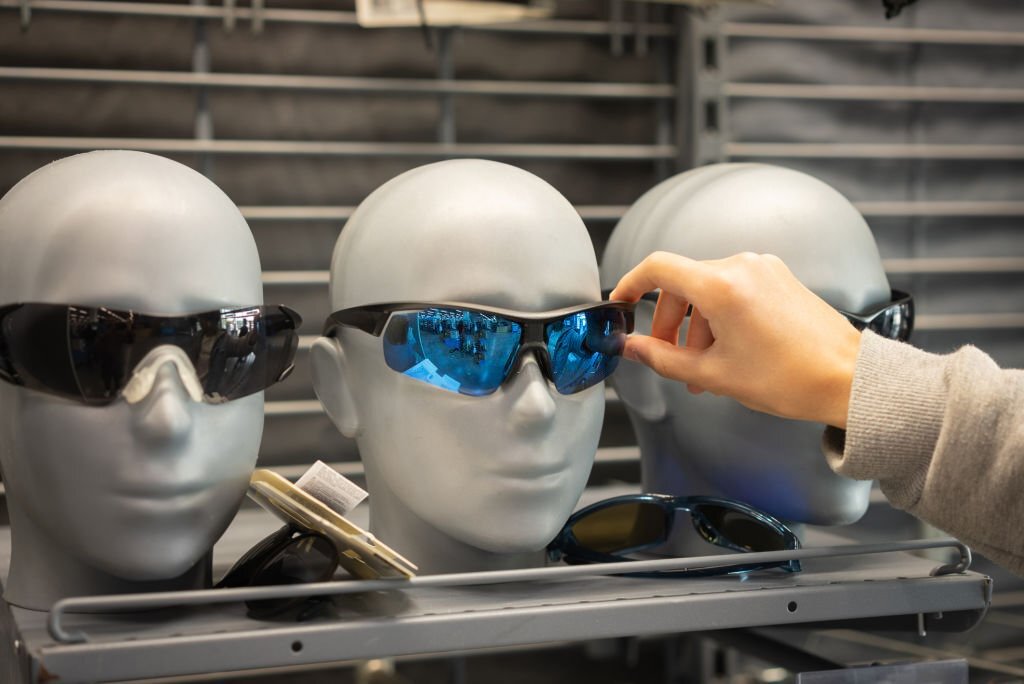
Athletes constantly strive to improve their performance and gain a competitive edge in sports. While physical training and skill development are key components, many athletes overlook the vital role that vision plays in their overall performance. Optometrists specializing in sports vision can assist athletes by optimizing their visual skills and enhancing their on-field performance. This article delves into the importance of sports vision and how optometrists can help athletes reach their full potential.
The Role of Vision in Sports Performance
Precise and efficient vision is crucial for athletes in various sports. It allows them to accurately track moving objects, judge distances, react quickly, and maintain focus. Visual skills such as depth perception, eye-hand coordination, peripheral awareness, and optical tracking directly impact an athlete's performance. A slight improvement in these graphic skills can significantly enhance sports performance.
Common Visual Challenges for Athletes
Athletes often face specific visual challenges that can affect their performance. These challenges may include:
- Depth perception issues
- Poor eye coordination
- Slow visual processing speed
- Reduced peripheral vision.
- Difficulty tracking fast-moving objects.
Identifying and addressing these challenges is crucial for athletes who wish to excel in their respective sports.
Importance of Sports Vision Training
Sports vision training aims to enhance athletes' visual skills and optimize performance. Through a range of specialized exercises and techniques, athletes can improve their visual acuity, depth perception, reaction time, and peripheral vision. Sports vision training programs are tailored to specific sports and individual athletes' needs, allowing them to fine-tune their visual abilities and gain a competitive advantage.
How Optometrists Assist Athletes?
Optometrists specializing in sports vision play a vital role in assisting athletes. They have extensive knowledge and expertise in assessing and improving visual skills. Optometrists work closely with athletes to evaluate their visual abilities, identify areas for improvement, and develop personalized treatment plans. By incorporating a combination of techniques such as visual exercises, specialized eyewear, and vision therapy, optometrists help athletes optimize their visual performance.
Evaluating Visual Skills
To assess an athlete's visual skills, optometrists conduct comprehensive evaluations. These evaluations may involve tests for visual acuity, contrast sensitivity, depth perception, eye coordination, and visual processing speed. Optometrists can develop targeted strategies to address specific visual challenges by identifying their strengths and weaknesses. This is one way optometrists can help athletes.
Prescription Glasses and Contact Lenses for Athletes
Optometrists may prescribe glasses or contact lenses to athletes with refractive errors. These visual aids correct nearsightedness, farsightedness, astigmatism, or presbyopia, allowing athletes to have clear vision during sports activities. Specialized sports eyewear is also available, offering protection from impact and enhancing visual performance.
Sports-Specific Visual Training Programs
Sports-specific visual training programs are tailored to the demands of particular sports. Optometrists design training exercises that simulate real-game scenarios to improve the visual skills required in the sport. For example, baseball players may undergo activities that enhance hand-eye coordination and tracking skills, while tennis players may focus on visual reaction time and peripheral vision.
Neuro-Vision Enhancement Techniques
Neuro-vision enhancement techniques involve training the brain to process visual information more efficiently. Optometrists utilize innovative technologies and exercises that stimulate neural pathways and improve visual processing speed. These techniques help athletes process visual cues faster, resulting in quicker reaction times and improved performance on the field.
The Benefits of Vision Therapy
Vision therapy is a structured program designed to correct visual deficiencies and improve visual skills. Optometrists employ various exercises and activities to strengthen the eye-brain connection, enhance eye coordination, and improve focus and concentration. Vision therapy can benefit athletes by improving their ability to track moving objects, judge distances accurately, and quickly shift focus between near and far objects.
Enhancing Visual Performance for Athletes
In addition to training programs and therapy, optometrists may recommend lifestyle modifications to optimize an athlete's visual performance. Adequate sleep, proper nutrition, and regular eye exercises contribute to overall visual well-being. Optometrists educate athletes about the significance of maintaining good eye health and provide guidance on practices that support optimal visual function.
Working with Sports Teams and Coaches
Optometrists specializing in sports vision often collaborate with sports teams and coaches to enhance their athletes' visual skills. They educate coaches on the importance of vision in sports performance by conducting workshops, seminars, and training sessions. Optometrists work closely with coaches to develop strategies that integrate sports vision training into athletes' overall training regimens.
The Future of Sports Vision
Advancements in technology and research continue to propel sports vision forward. Cutting-edge techniques such as virtual reality training and neuro-visual assessments are being explored to enhance athletes' visual performance. The future holds great potential for optometrists to continually innovate and develop new methods for improving sports vision and pushing the boundaries of athletic achievements.
Conclusion
Sports vision plays a crucial role in an athlete's overall performance. Optometrists specializing in sports vision can significantly impact an athlete's visual skills and, consequently, their on-field success. So, when the question of how optometrists can help athletes arises, the answer is through comprehensive evaluations, personalized training programs, and innovative techniques. They can assist athletes in optimizing their visual performance and gaining a competitive edge.
